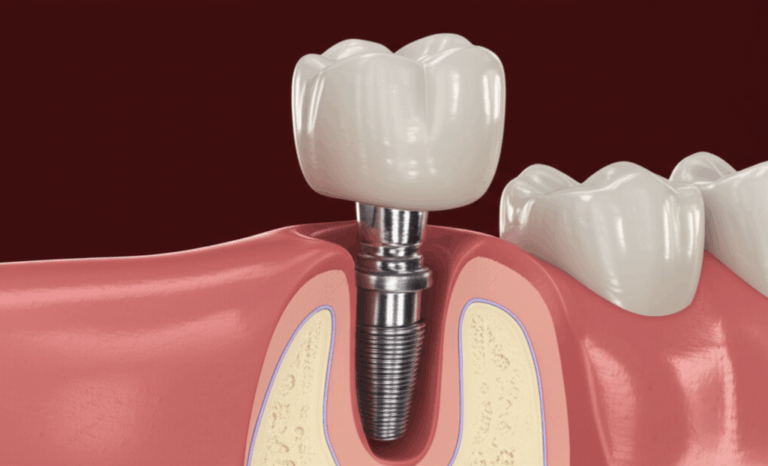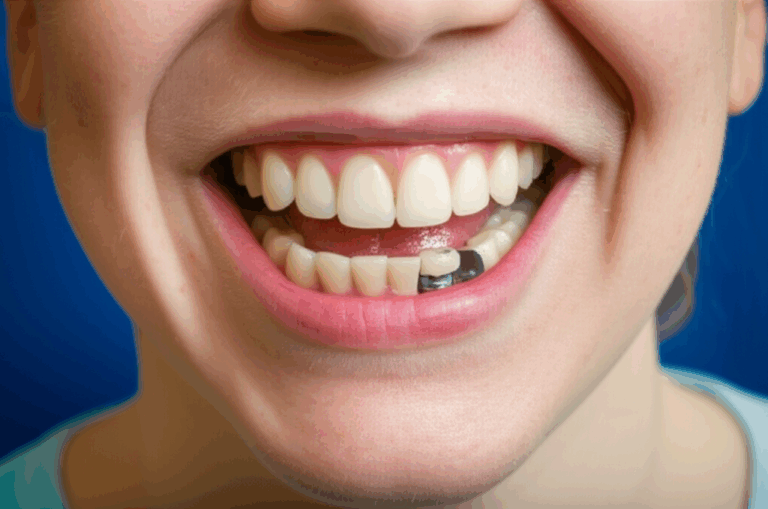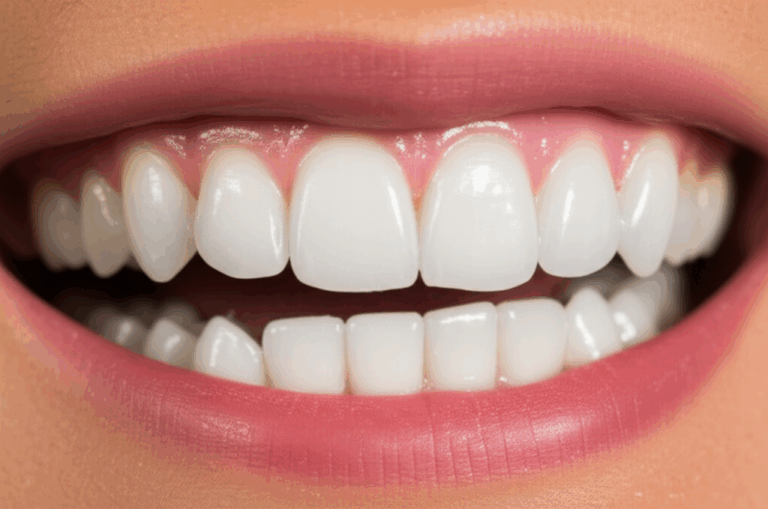
Can Dental Problems Cause Facial Swelling? Understanding Causes, Symptoms & When to Seek Help
Let me tell you a story. A few years back, I woke up one day and my cheek looked super puffy. My jaw hurt, and I definitely didn’t look like myself. If you’re reading this, maybe you’ve had the same thought I did that morning: Can problems with your teeth actually make your face swell up?
From what I’ve gone through—and looking into dental health—the answer is yes, dental problems are a big reason your face might swell. This isn’t just something small. Sometimes it means a serious infection is starting. I found out pretty quickly: ignore this kind of swelling and you could wind up in lots of pain, with bigger problems, or even in the hospital.
Let’s talk about how teeth problems lead to swelling, the signs to look for, and—most important—what you should do if you wake up looking more like a chipmunk than a person.
Table of Contents
- The Most Common Dental Problems That Cause Facial Swelling
- How I Recognize When Swelling Is Dental (and What the Red Flags Are)
- Knowing When To Get Help: Emergency Versus Urgent Dental Care
- What I Do For Relief Before Seeing The Dentist
- How The Dentist Diagnoses and Treats Facial Swelling
- Preventing Dental-Related Facial Swelling: What’s Worked For Me
- Conclusion: Your Smile’s Signal — Don’t Ignore The Swelling
The Most Common Dental Problems That Cause Facial Swelling
From my own trouble (and lots of searching), I’ve found there are a bunch of dental issues that can make your face puff up. Some are worse than others, but all need attention fast.
Tooth Abscesses: The Sneaky Ones
The first time I got facial swelling, it was from a bad dental abscess. It starts when germs get into your tooth or gums—they make a pocket of pus. If you ignore it, the infection spreads into your jaw and face. Suddenly a toothache becomes a big, swollen cheek.
There are two main types I’ve seen:
- Periapical abscess: This one starts at the very tip of your tooth’s root. It often comes from a deep cavity or a crack.
- Periodontal abscess: This one grows in the gum next to your tooth, usually when gum disease gets bad.
Both kinds can make your cheek, chin, or jaw hurt and swell. Sometimes it’s even hard to open your mouth or eat.
Advanced Gum Disease: Not Just Sore Gums
People think gum disease is just a bit of blood when you brush. But it can get a lot worse. When gum disease turns into periodontitis (the bad kind), you can get gum abscesses. The infection doesn’t stay in one place—it can move into the face. For me, it started as a little lump by my gums and then, really quickly, my cheek got hot and puffy.
Wisdom Teeth Problems: Back Teeth Bother
Who hasn’t heard scary wisdom teeth stories? One of the worst things I had was swelling after a wisdom tooth didn’t break all the way through the gum. Whether it’s stuck (impacted) or just poking out a little, bacteria love hanging out by wisdom teeth. What you get is pericoronitis—pain, swelling, tough time chewing way back in your mouth.
Untreated Cavities or Cracks: Small Start, Big Swell
A tiny cavity or cracked tooth might look like no big deal, but both let germs in. When bacteria get past your tooth’s outside and reach the middle (pulp), it can lead to those same abscess and swelling problems. It happened to me—a small crack in a bottom tooth quickly ended up making my jaw all swollen.
Swelling After Surgery: When Is It Normal?
After any dental surgery—like getting a tooth pulled or having an implant put in—some swelling is normal. For me, it peaked a day or two after and faded away after that. But you should know when it’s more than normal healing. If swelling is really bad, gets worse, or comes with pus, fever, or bad pain, infection could be the cause. And if you get dry socket after having a tooth pulled, you won’t miss the pain.
Dental Cysts and Tumors: Rare But Possible
Sometimes facial swelling is from cysts or harmless tumors in the jaw or gum. They’re not as common, but you shouldn’t ignore them. These swellings grow slowly and aren’t as painful as infections. Still, any strange lump needs a dentist’s look.
How I Recognize When Swelling Is Dental (and What the Red Flags Are)
After a couple close calls, I learned how to tell if facial swelling is coming from my teeth or gums. Here’s what I notice:
Local Signs
- Swelling in just one spot—like one cheek, jaw, or under the chin—usually means dental trouble.
- Throbbing or sharp pain near a tooth or gum.
- Red, warm, or sore skin over the swelling.
- Sensitive to heat, cold, or biting down—chewing can really hurt.
- Sometimes there’s pus, bad taste, or bad breath.
Warning Signs: When It’s Serious
Not all swellings are equal. Some things mean you need a doctor fast:
- Fever and chills. If your temperature is high, the infection could be spreading.
- Hard to swallow or breathe. Swelling in your throat, mouth floor, or neck is an emergency.
- Swelling that gets big fast. If your cheek blows up quickly, you shouldn’t wait.
- Swelling by the eye or blurry vision. Go to ER—a tooth infection near your eye can be dangerous.
- Feeling tired, mixed up, or weak. Could be a sign the infection is affecting your whole body.
One thing I learned: Don’t “tough it out” or wait until the next day with these symptoms. The risk of a serious infection—even sepsis—isn’t worth it.
Need more info? Dental Diseases has a good list of warning signs.
Knowing When To Get Help: Emergency Versus Urgent Dental Care
Here’s what I do and what my dentist told me—some swelling needs the ER, while others can see a dentist soon.
Go to the Emergency Room If…
- You can’t breathe or swallow right.
- Swelling gets a lot worse—especially near your eye, neck, or throat.
- You have a high fever won’t go away.
- You feel weak, confused, or very sick.
Call the Dentist Urgently (Within 24 Hours) If…
- Swelling hurts a lot, but you can still breathe and swallow.
- You see pus coming from your tooth or gum.
- Pain or swelling doesn’t get better, even when you take pain medicine.
- Swelling isn’t any better after a day of home care.
Most dentists will see you for an emergency visit—just tell them you have face swelling or a tooth infection. If you wait too long, it can get much more dangerous and cost more to fix.
What I Do For Relief Before Seeing The Dentist
Waiting for care isn’t fun, but these things have helped me feel better at home (without making swelling worse).
What Helps Me:
- Cold Compress: I hold an ice pack or frozen veggies (wrapped in cloth) on my cheek for 15-20 minutes, then take it off for 20 before using it again. It helps with pain and slows the swelling.
- Keep My Head Up: I use extra pillows at night to keep my head raised. It seems to stop more swelling from building.
- Over-the-Counter Pain Meds: Things like ibuprofen or acetaminophen help with pain (but check with your doctor if you’re unsure).
- Salt Water Rinse: Swishing gently with warm salty water feels nice on my gums. Don’t do this, though, if you have a new open wound.
- Stay Hydrated: Drinking water always helps.
What I Stay Away From:
- No Heat: Don’t use heat packs—can make infection spread.
- No Popping or Squeezing: Never try to pop or cut an abscess yourself. I found out the hard way—it makes things worse.
- No Old or Borrowed Antibiotics: Using leftover or someone else’s antibiotics doesn’t help and can be risky.
Still not sure? Dental Care has more safe tips.
How The Dentist Diagnoses and Treats Facial Swelling
Any time my swelling was serious, the dentist would do a careful check and sometimes some pictures.
Diagnosis
- Exam: They feel for sore spots, swelling, pus, and which teeth hurt.
- X-rays: These show abscesses, cracks, or hidden problems under the gum.
- CT Scan: For really bad cases, they might use a scan to see how far the infection is going.
Treatments I’ve Had (and What Usually Happens)
Antibiotics
If there’s infection, antibiotics are usually the first step. I always finish the whole batch, even if I start to feel okay earlier.
Draining the Abscess
If there’s a lot of pus, they might need to gently open the spot and let it drain. Sounds unpleasant, but it helps quickly.
Root Canal
If the tooth can be saved, root canal takes out the sick pulp inside and seals it up to keep germs out.
Pulling the Tooth
Some teeth are too far gone. Taking the tooth out lets things heal and stops more trouble.
Surgery
Sometimes an oral surgeon is needed for deep infections in the jaw or neck.
My biggest tip? Get help fast—it almost always gets better within a week or two when you see the dentist early.
Want to know about new teeth fixes after surgery? china dental lab and digital dental lab have good info about rebuilding your smile.
Preventing Dental-Related Facial Swelling: What’s Worked For Me
The best way to avoid swelling is to stop problems before they start. Here’s what I do now:
- Brush and Floss: Twice a day brushing and flossing every day keeps germs away.
- Go to the Dentist Regularly: I don’t miss my cleanings or check-ups. Dental pros spot problems before they hurt.
- Fix Small Issues Early: A tiny cavity or crack is way easier to treat right away.
- Wear a Mouthguard: If I’m playing sports, I use a mouthguard. It’s saved my teeth more than once.
- Cut Down on Sugar: Less sugar means less food for germs.
- Stay Hydrated: Dry mouth gives infections a chance, so I drink lots of water.
Looking for more? Teeth Health has more tips.
Conclusion: Your Smile’s Signal — Don’t Ignore The Swelling
Nothing grabs your attention like seeing your face swell up in the mirror. I now know it’s my body yelling for help—most times, because of my teeth. Swelling isn’t just annoying; it’s often a sign of something worse under the surface and, sometimes, even an emergency.
If you notice swelling, act fast. Call your dentist or doctor, especially if it spreads, there’s a fever, or you have trouble talking or breathing. Try the home tips above, but don’t try to fix it yourself. And once you’re better, stay on top of prevention—way easier and cheaper than fighting a big infection.
Take care of your teeth, and they’ll take care of you—face and all.








